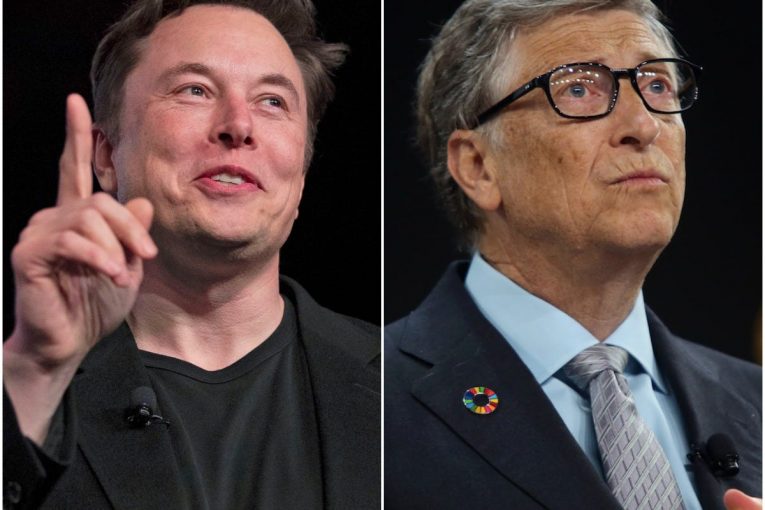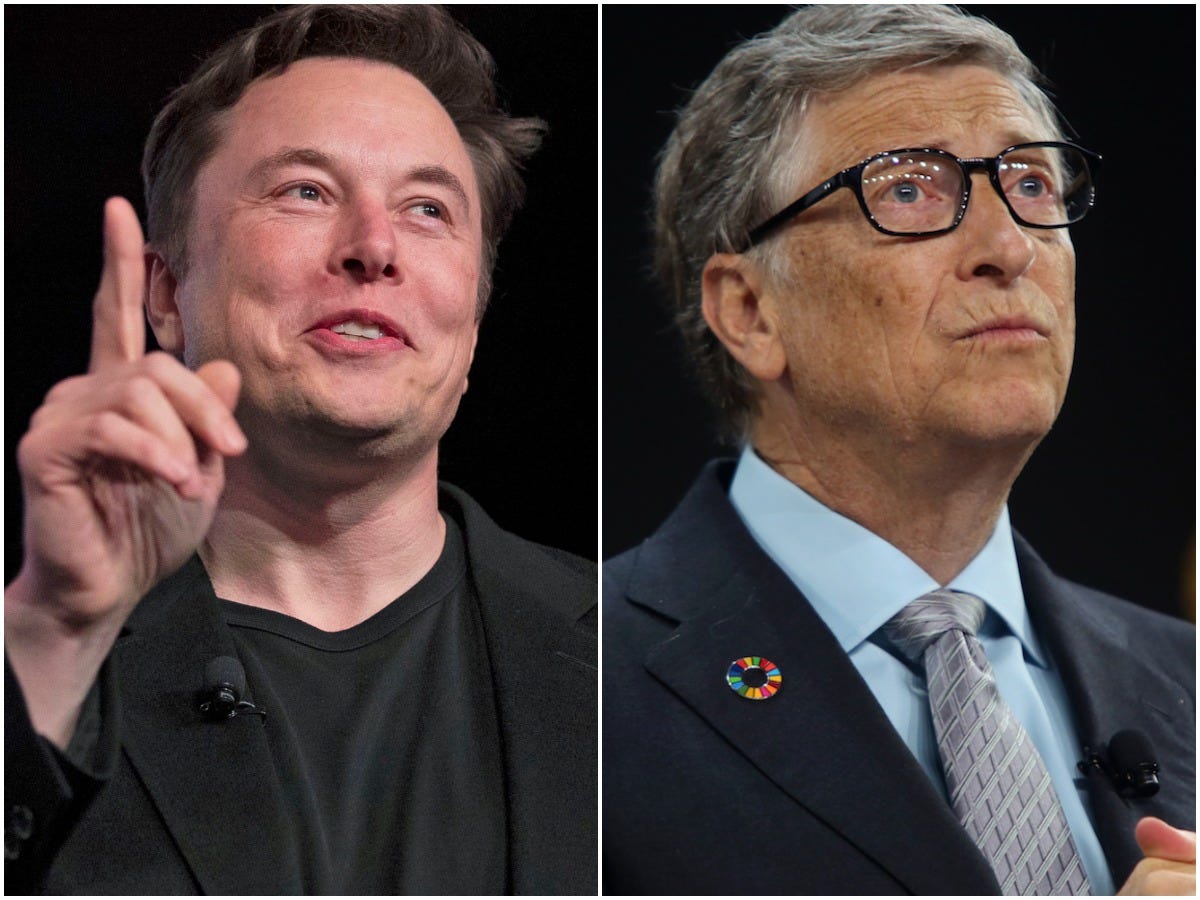

By Jose Orozco
Since late August, Bill Gates and Elon Musk have shared their thoughts on the potential alternatives to carbon-based fuels. Gates stated his concern over electric vehicles in a blog post, asking, “How do we move around in a zero-carbon world?”
Musk responded in opposition with a tweet.
In the post, Gates describes the issue of energy density saying, “The problem is that batteries are big and heavy. The more weight you’re trying to move, the more batteries you need to power the vehicle. But the more batteries you use, the more weight you add — and the more power you need.”
There is an issue of weight; but more importantly, there is an issue of space. Batteries are more complex than just a pack of cells. Batteries contain added components required to cool, connect and house the batteries. 
Gates does not mention this, but I feel that these components also contribute to a major problem farmacie-romania –– space. The amount of space that batteries would require to move large machines would leave little to no room for productive transportation.
Even if we are able to match power with gasoline, the amount of extra cost that would be required to transport the same amount of material as our greenhouse emitting machines would be economically devastating. Companies would lose money causing them to either revert to previous methods or hike up the prices of their products.
So, the solution? Gates says, “The answer is simple, even if making it happen won’t be: use clean electricity to run all the vehicles we can, and get cheap alternative fuels for everything else.”
Gates attempts to provide a solution to what I consider to be a Goldilocks dilemma: Today’s batteries are in the sweet spot when it comes to consumer vehicles.
For larger machines like cargo ships and airplanes, however, an extreme amount of battery cells would be required to produce force. This would take up too much space and be detrimental to the purpose of such a machine.
Gates believes that the solution is to seek other sources of energy for larger machines. Lithium-ion batteries can take over the consumer market because the batteries are within their limits.
The CEO of Tesla tweeted on a query regarding Gates’ position saying, “He has no clue.”
Almost three years ago on Nov. 16, 2017, Musk unveiled Tesla Semi as an alternative vehicle to Diesel trucks. Hence, it is obvious that Musk has been working on producing larger vehicles with batteries in mind. And it seems to me that Gates does not consider his efforts as being enough.
It is apparent to me that Musk holds Lithium-ion batteries at the forefront of his vision, and it is an enticing vision, but is he correct?
The Clean Energy Institute (CEI) has explained a few drawbacks of Lithium-ion batteries. They are considered by the industry to be the best energy-dense batteries on the market.
One of the main concerns is safety, they explain, “Li-ion batteries have a tendency to overheat, and can be damaged at high voltages. In some cases, this can lead to thermal runaway and combustion.” The required safety mechanisms increase weight and can decrease performance.
In my opinion, keeping performance is a must since according to CEI, Li-ion batteries have a hundred times lower energy density than gasoline.
Hence, it is apparent that these issues would only be increasingly detrimental to larger machines like aircraft and ships. This makes it difficult to become carbon neutral via Lithium-ion batteries.
But what about alternative fuels, and what can we expect? Gates references biofuels as one of the alternatives in his blog.
The Bioenergy Technologies Office explains the two current, main sources of biofuels: ethanol and biodiesel.
Ethanol is produced by various plant materials, and it is commonly used to modify the composition of gasoline. By adding ethanol to fuel, it lowers the percentage of gasoline compounds providing greenhouse gas emissions.
Biodiesel is used to a similar effect to ethanol, and it is made with vegetable oils and animal fats.
But these are first-gen fuels, and Gates is concerned with newer advances where biofuels “are made from plants that aren’t grown for food” and where “some of these fuels can even be dropped into existing engines without any modifications needed.”
The main problem, no matter the generation, is that biofuels are extremely expensive to make. Harvesting, transportation and biomass handling require a lot of manual labor. This is in contrast to battery automation, which can lower the cost.
Manual labor means more jobs, which is beneficial, but in my opinion, this added cost will negatively affect the market value of biofuel. Consumers will be reluctant to buy an expensive, and potentially, less efficient fuel for their vehicles.
Gates also provided another option, saying, “Another type of alternative fuel is electrofuels. By using electricity to combine the hydrogen molecules in water with the carbon in carbon dioxide, we can create a liquid fuel that works in existing engines.”
This seems like a more viable option, but “electrofuels can cost anywhere from 3 times to 7 times as much as fossil fuels.”
There is also the question of purity. Does this process provide a high yield of the intended product, which is needed for fuel?
At the moment, I am leaning more towards Musk’s position. Batteries seem to be the most reasonable solution at the moment. I mean there are other types of batteries in development that can surpass Li-ion batteries.
The Institute of Electrical and Electronic Engineers (IEEE) has posted an article written by Prachi Patel, mentioning that ceramic electrolytes can be the next step for batteries.
Patel concisely explains the benefits of solid-state electrolytes, saying, “These batteries promise to be safer by relying on a solid electrolyte instead of the flammable liquids used in today’s lithium-ion batteries.”
The company Iron Storage Systems has managed to make “the same thickness as the plastic separators used in today’s lithium-ion batteries, and it conducts lithium ions as well as current liquid electrolytes.”
These new batteries will be a remedy to the various problems we currently face with Li-ion batteries. However, like with Gates’ suggestions, we are still in the development phase.
The main purpose of renewable energy is to stop the exacerbation of climate change, and both Gates and Musk are working towards that goal.
Unfortunately, there is no perfect solution. There is no one solution.
Today, the only action we can take is to continue producing carbon-neutral energy sources; because for the moment, fossil fuels are here to stay. But one thing is certain, I believe we will have to give in to carbon-based fuel eventually and decide to live with the cons of alternative energy.
Support our work – to become a sustaining at $5 – $10- $25 per month hit the link:
